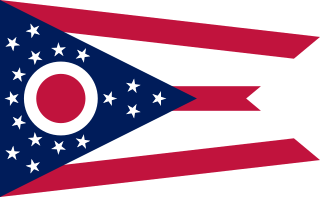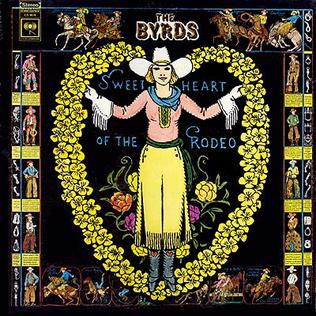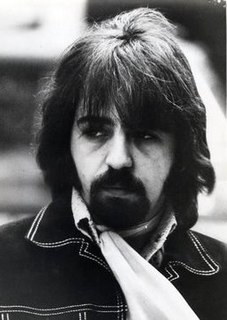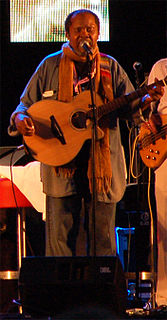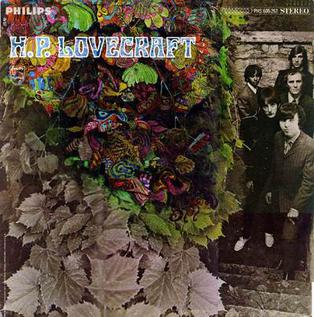Early life
McGeorge began playing guitar in 1961. His early guitar influences included Scotty Moore, James Burton, Chet Atkins, Charlie Byrd, Les Paul, and the Brazilian Bossa Nova artist, Laurindo Almeida. The folk music revival of the early 1960s was also influential, but, like many young Americans at the time he became most heavily influenced by the first Beatles-led British Invasion. Particular favorites at the time were The Rolling Stones and the original Byrds.
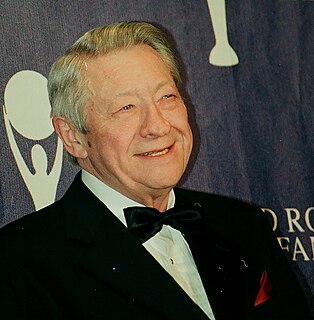
Winfield Scott "Scotty" Moore III was an American guitarist and recording engineer. He is best known for backing Elvis Presley in the first part of his career, between 1954 and the beginning of Elvis's Hollywood years.

James Edward Burton is an American guitarist. A member of the Rock and Roll Hall of Fame since 2001, Burton has also been recognized by the Rockabilly Hall of Fame and the Musicians Hall of Fame and Museum. Critic Mark Demming writes that "Burton has a well-deserved reputation as one of the finest guitar pickers in either country or rock ... Burton is one of the best guitar players to ever touch a fretboard." He is ranked number 19 in Rolling Stones' list of 100 Greatest Guitarists.

Chester Burton Atkins, known as "Mr. Guitar" and "The Country Gentleman", was an American musician, occasional vocalist, songwriter, and record producer, who along with Owen Bradley and Bob Ferguson, among others, created the country music style that came to be known as the Nashville sound, which expanded country music's appeal to adult pop music fans. He was primarily known as a guitarist. He also played the mandolin, fiddle, banjo, and ukulele.
McGeorge was quoted in the 1980s: "My parents were adamantly against my listening to rock & roll at home, so, from the time I was about eleven years old I'd sneak a small transistor radio and an earpiece under my pillow at night. I'd tune in radio as diverse as the nearby Chicago Jazz & R&B stations to WSM in Nashville and the "Grand Ole Opry". I've always felt that the negative pressure from my parents made me even more determined to love this music. Their over-protective upbringing was a complete failure: Within five years I was not only a touring rock musician, I was helping throw TV sets out of hotel windows."
Rock and roll is a genre of popular music that originated and evolved in the United States during the late 1940s and early 1950s from musical styles such as gospel, jump blues, jazz, boogie woogie, and rhythm and blues, along with country music. While elements of what was to become rock and roll can be heard in blues records from the 1920s and in country records of the 1930s, the genre did not acquire its name until 1954.

A transistor radio is a small portable radio receiver that uses transistor-based circuitry. Following their development in 1954, made possible by the invention of the transistor in 1947, they became the most popular electronic communication device in history, with billions manufactured during the 1960s and 1970s. Their pocket size sparked a change in popular music listening habits, allowing people to listen to music anywhere they went. Beginning in the 1980s, however, cheap AM transistor radios were superseded by devices with higher audio quality such as portable CD players, personal audio players, boomboxes, and (eventually) smartphones, some of which contain radios themselves.

Chicago, officially the City of Chicago, is the most populous city in Illinois, as well as the third most populous city in the United States. With an estimated population of 2,716,450 (2017), it is the most populous city in the Midwest. Chicago is the principal city of the Chicago metropolitan area, often referred to as Chicagoland, and the county seat of Cook County, the second most populous county in the United States. The metropolitan area, at nearly 10 million people, is the third-largest in the United States, and the fourth largest in North America and the third largest metropolitan area in the world by land area.
He found his initial footing playing high school dances with a small local band from Northwest Indiana, The Mystics. He subsequently played with the group, The Blackstones, with Jeff Boyan (aka Geoff Bryan). Boyan would later lead Chicago's Saturday's Children, and, in an odd twist of fate, replaced McGeorge on bass with H.P. Lovecraft in Spring 1968, appearing on their second album, H. P. Lovecraft II .
The Blackstones are a United Kingdom-based reggae vocal trio formed in 1974, in the tradition of the Jamaican harmony-trio.

H. P. Lovecraft II is the second album by the American psychedelic rock band H. P. Lovecraft and was released in September 1968 on Philips Records. As with their debut LP, the album saw the band blending psychedelic and folk rock influences, albeit with a greater emphasis on psychedelia than on their first album. H. P. Lovecraft II failed to sell in sufficient quantities to reach the Billboard Top LPs chart or the UK Albums Chart, despite the band being a popular act on the U.S. psychedelic concert circuit. Legend has it that the album was the first major label release to have been recorded by musicians who were all under the influence of LSD.
Career
The Blackstones were a Beatles-influenced quartet who performed and recorded many original compositions penned by Boyan, with McGeorge as collaborator. The Blackstones performed with a number of high-profile rock acts during 1965, including The Byrds, The Beau Brummels and Herman's Hermits. The band developed a significant following and, as a result, was invited to play at The Cellar a teen dance club in Arlington Heights, Illinois, home of house band The Shadows of Knight. There the Blackstones became a sensation, with McGeorge's guitar and vocal skills a major factor in their success. The Blackstones disintegrated in Fall 1965 after two members, bassist Tom Osborne and drummer David Blanchard, were drafted into the US Army.

The Byrds were an American rock band formed in Los Angeles, California in 1964. The band underwent multiple lineup changes throughout its existence, with frontman Roger McGuinn remaining the sole consistent member. Although they only managed to attain the huge commercial success of contemporaries like the Beatles, the Beach Boys, and the Rolling Stones for a short period in the mid-1960s, the Byrds are today considered by critics to be nearly as influential as those bands. Their signature blend of clear harmony singing and McGuinn's jangly twelve-string Rickenbacker guitar was "absorbed into the vocabulary of rock" and has continued to be influential.

The Beau Brummels were an American rock band. Formed in San Francisco in 1964, the band's original lineup included Sal Valentino, Ron Elliott, Ron Meagher, Declan Mulligan, and John Petersen (drums). They were discovered by local disc jockeys who were looking to sign acts to their new label, Autumn Records, where Sylvester Stewart—later known as Sly Stone—produced the group's early recording sessions. Initially, the band's musical style blended beat music and folk music and typically drew comparisons to the Beatles, while their later work incorporated other music genres such as psychedelic rock and country rock.
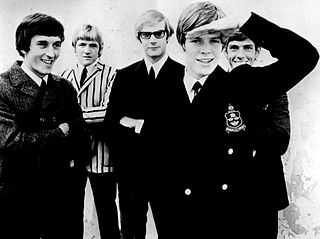
Herman's Hermits are an English beat rock band, formed in Manchester in 1964.
Attempts to replace them were unsuccessful and McGeorge became interested in the sudden opening in the Shadows of Knight created by the loss of rhythm guitarist, Norm Gotsch, who was also drafted into the U.S. military. The Shadows of Knight's Joe Kelley gauged McGeorge's interest in joining the band and he made the difficult decision to part company with friend Boyan to accept The Shadows' offer. McGeorge's influence on the Shadows of Knight, and theirs upon him, were enormous. His high energy level, showmanship and inventive secondary role play behind the often brilliant guitar work of Joe Kelley, intertwined with drummer Tom Shiffour's riffing, helped give the band its signature sound. McGeorge's insistence the band not stray from its unique sound resulted in the ground-breaking live studio recording techniques employed in production of the band's late 1966 classic "I'm Gonna Make You Mine".

Joseph James Kelley was an American left fielder in Major League Baseball (MLB) who starred in the outfield of the Baltimore Orioles teams of the 1890s. Making up the nucleus of the Orioles along with John McGraw, Willie Keeler, and Hughie Jennings, Kelley received the nickname "Kingpin of the Orioles".
The term studio recording means any recording made in a studio, as opposed to a live recording, which is usually made in a concert venue or a theatre, with an audience attending the performance.
As the Shadows of Knight's short-lived run through 1966 and mid-1967 came to an end, McGeorge accepted a surprising invitation from H.P. Lovecraft's leader, George Edwards (aka Ethan Kenning), to join that band on bass. With another difficult career decision behind him, McGeorge made the transition to not only a new group and a new genre, but to a new instrument as well. With only a few days to learn his new band's songs and bass lines, he appeared on their notable first album of the same name. McGeorge again succeeded in adding a unique dimension to this somewhat quirky band and its thematic repertoire.
After a short time, however, McGeorge confided to friends that the role proved not to be to his liking, and that he and the band were not a good fit. Financial pressures mounted due to the band's poor earning power, and he became increasingly at odds with Edwards, who in early 1968, along with the band's manager, the eccentric former Dunwich Records co-founder George Badonski, decided to replace him with Boyan. In January 1968 friend David "Hawk" Wolinski confided that H.P. Lovecraft had been auditioning bass players. McGeorge confronted the band, who denied the rumors. He immediately made plans to resign and remain in Chicago, rather than undertake the band's planned relocation to Marin County, California. However, these arrangements came undone and he was forced to agree to the ill-considered move. He would state in an April 1968 interview with the Chicago Tribune that he had only agreed to the California move because he had no other means of making a living.
It soon became apparent that he had been retained short-term simply to ensure the band could fulfill numerous California contractual obligations, among them a notable March 1968 appearance at the Fillmore Auditorium with Traffic. Ironically, recordings of those performances reveal McGeorge the artist at his absolute best.
His firing was very callously handled. McGeorge, feeling deceived and humiliated by this experience, suffered a crisis of confidence, becoming what he later described as "seriously withdrawn." He returned home to his native Indiana and began a long period of rehabilitation, which included a rigorous daily regimen of guitar study. Inspired by the talents of classically trained David Miotke of H.P. Lovecraft, for several years he stepped away from the popular music scene to turn to the formal study of music and the guitar. In 1969, he studied jazz guitar at Boston's Berklee School of Music. In 1972, with his guitar skills well honed, he moved to the Southwest and began playing country music full-time, long a personal favorite genre. In 1978, he finished his formal music education, graduating with honors from the prestigious jazz program at the University of North Texas.
McGeorge's broad range of studies made him equally at home with rock, country, electric blues, jazz & classical guitar. As a result, he became a highly sought-after session musician. Throughout the 1970s, he performed on numerous radio & television commercials, as well as performing and recording with a series of prominent country artists, including Waylon Jennings, Lawanda Lindsey, Johnny Bush, and Bucky Allred.

